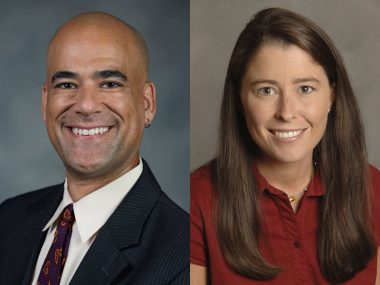The School of Communications professors examined advertisements and websites of U.S.-based industry trade groups representing the energy industries of coal and petroleum.

This study, which was published online in mid-July, analyzes advertisements and websites of U.S.-based industry trade groups representing the energy industries of coal (American Coalition for Clean Coal Electricity) and petroleum (American Petroleum Institute). Additionally, the article will appear in Mass Communication & Society’s next print issue, titled “2016 Special Issue: Climate & Sustainability Communication.”
Using a cultural studies perspective, the authors reveal the power inequities surrounding climate discourse by suggesting wealthy industry trade groups employ a discursive practice of distraction and appropriation of U.S cultural values and mores. The article suggests coal and petroleum industry trade groups essentially shift public dialogue from climate change and potential environmental policies to how these policies would hurt the industries and adversely affect the average U.S. citizen.
In a review of the paper, one anonymous peer wrote, “Overall, I find this to be a strong and interesting manuscript. The author is to be commended for addressing a topic that is extremely important, given current public debate on issues related to climate change, and for crafting a very well-written manuscript. The theoretical issues are clear; the methodology is appropriate; and the presentation of the findings and analysis are clear and thorough.”
Mass Communication & Society is a selective academic journal – its acceptance rate is approximately 10.4 percent – and publishes six times a year. The publication features content from a wide variety of perspectives and approaches that advance mass communication theory, especially at the societal or macrosocial level.


